ANTIBIOTIC RESISTANT BACTERIA
Table of Contents
- 1 ANTIBIOTIC RESISTANT BACTERIA
- 1.1 As of September 2011, the European Parliament’s Agriculture Committee (AGRI) ihas voted to make a draft budget of €2 million (£1.7million) available in order to conduct and co-ordinate research into homeopathy and phytotherapy use in farm animals.
- 1.2 *Antibiotic resistant microbes biggest threat to European health
The use of homeopathy avoids the risk of encouraging antibiotic resistance in bacterial populations.
Antibiotic resistant strains of bacteria have become newsworthy, in recent times. Ever since the outset, the use of antibiotics has met the generation of antibiotic resistance in certain bacteria. The most capable types of bacteria, in this regard, appear to be E. coli, Salmonella and Staphylococcus aureus. Because of the unwise use of antibiotics, in humans and animals (especially widespread feeding of antibiotics to farm animals), the situation is becoming more serious, with organisms such as MRSA now becoming a serious killer.
The main species in which dangerous antibiotic resistance has been encountered are: Salmonella, Enterobacter faecalis, Enterobacter faecium, Staphylococcus aureus (MRSA) and E. coli,
It is important to consider reduction of the use of antibiotics. In farm animals, much can be done by improving management and by reducing stocking densities, especially in housed farm animals (such as pigs and chickens) – factory farming represents the largest risk. The use of homeopathy completely avoids this problem and is an effective way to treat farm diseases, whether in individuals or in herds and groups.
The Soil Association has recently produced a very informative leaflet on this topic.
On the BMJ's ‘Clinical Evidence' website, in June 2007, was the headline: “Antibiotic resistant microbes biggest threat to European health” *. It is difficult for the AVMC to
add to that powerful message.
Since homeopathy operates merely by stimulating the body's own defence mechanisms, the use of homeopathy cannot provoke antibiotic resistance in bacterial populations. It is a pleasure to be working as a homeopathic vet and holistic vet, knowing that we are not contributing to this serious human and animal health threat.
GOOD NEWS!
As of September 2011, the European Parliament’s Agriculture Committee (AGRI) ihas voted to make a draft budget of €2 million (£1.7million) available in order to conduct and co-ordinate research into homeopathy and phytotherapy use in farm animals.
This is very welcome news and we hope it comes to fruition, since the rise in antibiotic resistant bacteria is of grave concern to all, fuelled by the massive on-farm use of antibiotics. It is good to know that Europe is at least seeking another way to treat farm animals (food animals).
Those who oppose this news bleat about ‘no research', then complain bitterly when meaningful research with important practical applications is proposed!
*Antibiotic resistant microbes biggest threat to European health
BMJ 2007; 334 doi: 10.1136/bmj.39237.646655.DB (Published 7 June 2007)
